2022 Address to the Faculty
September 20, 2022
DeBartolo Performing Arts Center, Decio Theatre
Warmest greetings and thank you for joining me today. It is good to be back with you in person.
A signal event occurred this past summer: we closed our Covid Response Unit, the group created to conduct campus Covid testing and facilitate quarantine and isolation during the pandemic. With greatly reduced and more manageable cases, we were able to move these operations back to our University Health Services for students and our Wellness Center for staff and faculty, offices that in normal times care for the health and well-being of campus. While we must remain vigilant about Covid, we welcome the chance to devote the bulk of our time and effort to teaching and inquiry and to building an even more distinguished Catholic research university.
I want to take this opportunity to thank you, our faculty, for your efforts during the trying years of the pandemic. At our Commencement weekend for the class of 2022, the graduates and their parents were effusive in their thanks for keeping the students on campus. They knew that friends at other institutions were largely or exclusively on-line, and again and again I heard heartfelt thanks for continuing in-person instruction. I was gratified, but know that the thanks should go to you, who made such instruction possible, and to our staff who were front-line workers in our Covid response testing center, quarantine and isolation efforts, dining halls, residence halls and other areas. I know how demanding the recent years have been for you personally and professionally, and I thank you for all your efforts. We had many pandemic heros on this campus.
When I meet with current students or recent graduates, I ask them about their educational experience, and almost invariably receive an enthusiastically positive evaluation. I then ask them about their best classes and teachers. They sometimes have trouble selecting just one, but they eventually give one or two. I then ask what was so good about the class or instructor, and they talk about the intellectual engagement, the stimulating lectures and the class discussions. Yet they almost always go on to say that the faculty member took a personal interest in them, their learning, their well-being and their future plans. I will not claim that we are the only university to offer intellectually stimulating, challenging, pedagogically effective classes, but I do believe that we are distinguished by the care you show for the learning, well-being and future success of our students.
In a recent survey of our alumni, which I will discuss below, the appreciation for this aspect of a Notre Dame education came through clearly. One graduate put it this way, “I went to other universities before Notre Dame, and I was a number there. At Notre Dame, I was not.”
This care you show for our students has always been present, but it was prominently on display during the pandemic. It is part of what engenders the devotion our graduates have to Notre Dame, and I thank you for it.
In this address I will speak briefly about the following topics:
- Leaders in New Positions
- The University Strategic Planning Process
- Reputation and Trust Survey
- Reporting Concerns/Misconduct
- Diversity, Equity and Inclusion
- A Historic Investment in Our People
- ND Forum 2022-23
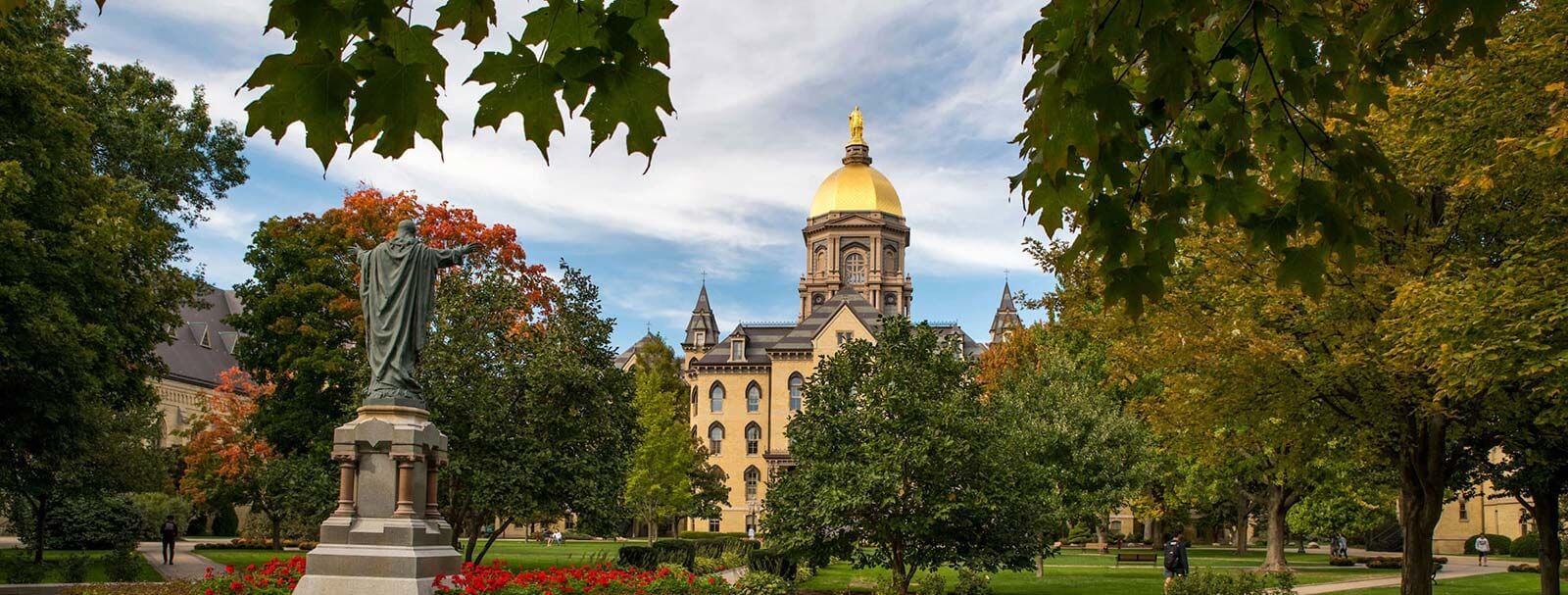
Leaders in New Positions
Some exceptional leaders have taken on new roles on my leadership council, and I want to introduce them briefly.
John McGreevy is our new Charles and Jill Fischer Provost. Well known to many of us, John has been a distinguished faculty member in the History department for 25 years, served as chair of the department for six years, and as the I.A.O'Shaughnessy dean of the College of Arts and Letters for ten years. John has brought great energy to this role, having already conducted over 100 interviews and listening sessions since his appointment was announced.
Heather Christophersen has taken on a new role as vice president for human resources. An engineer by training who is known for her strategic vision, inclusive leadership style, and commitment to innovation, Heather has previously served in leadership roles in Development, Strategic Planning, Maintenance, Sustainability and the Alumni Association.
Anne Griffith is our new vice president for University Enterprises and Events, having previously served as assistant vice president in that division. Anne has experience in Development and in the President's Office, and she brings creativity and great talent as a team-builder to her new role.
Micki Kidder is our new vice president for Undergraduate Enrollment, overseeing Undergraduate Admissions, Financial Aid, Student Accounts and Pre-College Programs. She is a proven leader, having served effectively in University Enterprises and Events, University Relations and in the President and Executive Vice President's Offices.
Hugh Page has taken the recently created position of vice president for Institutional Transformation and Advisor to the President. I will say more about Hugh's new role later in my remarks. Hugh is known and widely admired for his leadership as the former dean of the First Year of Studies and vice president and associate provost, as well as a faculty member in Theology and Africana Studies.
Finally, we are grateful to Tom Fuja for serving as interim vice president, associate provost and dean of the Graduate School. Tom has been a faculty member in Electrical Engineering since 1998, and served as interim dean of the College of Engineering from 2018-20. We plan to launch the search for a new dean of the Graduate School later this semester.
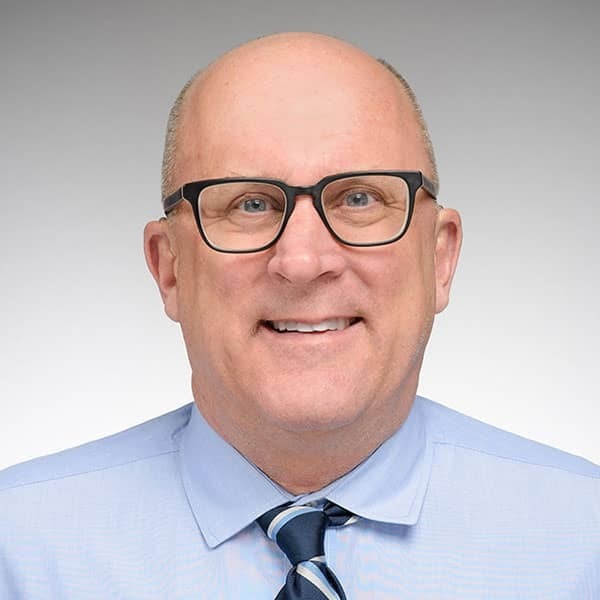
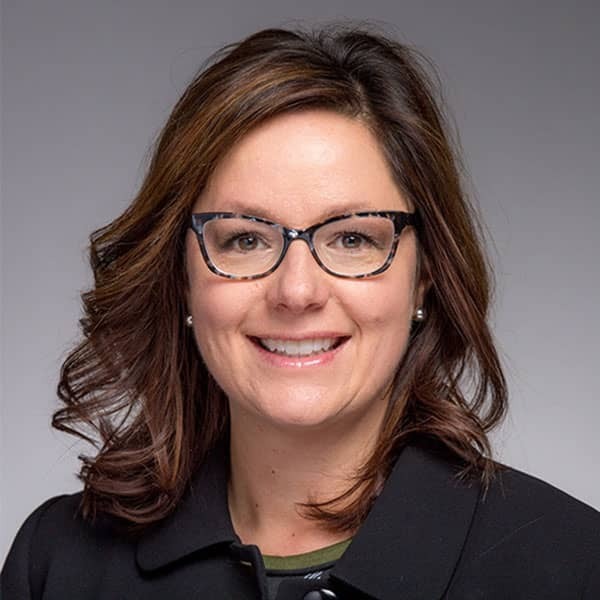
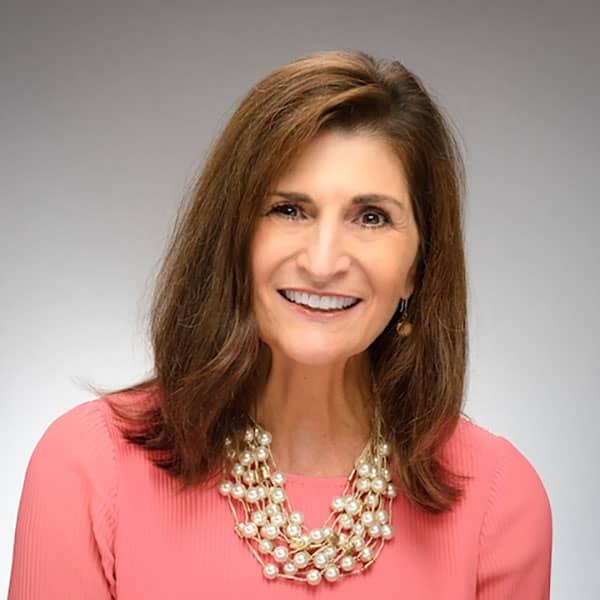
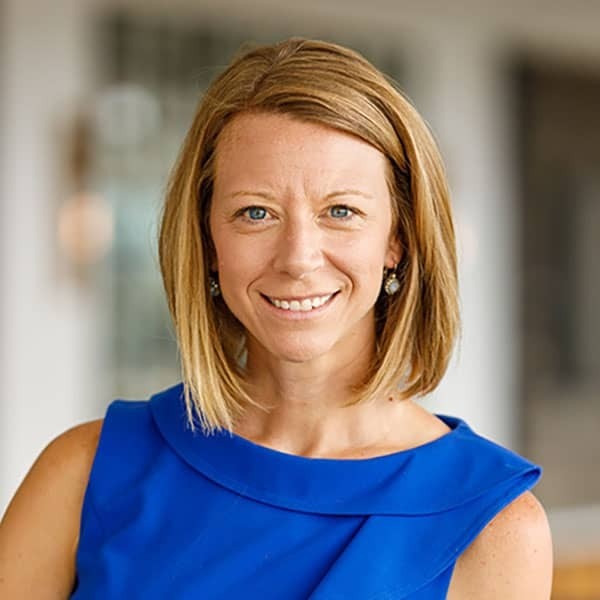
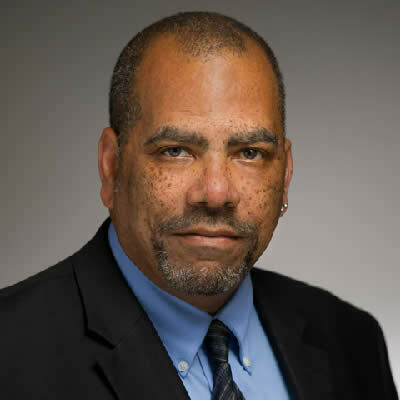
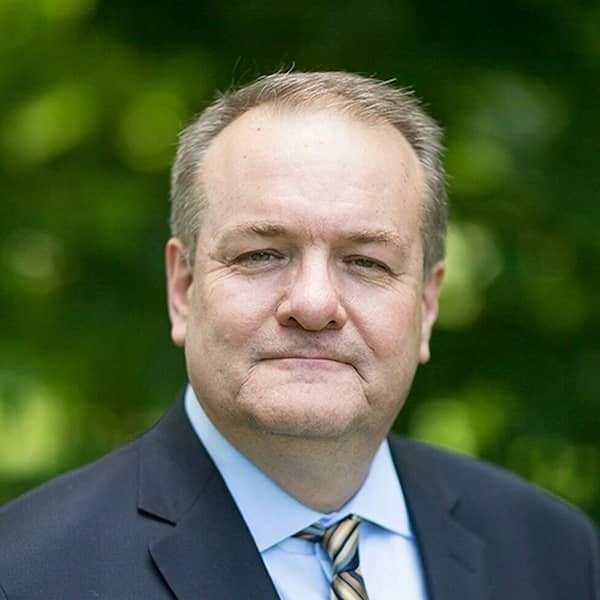

The University Strategic Planning Process
Every ten years, the University engages in a process to develop a university-wide strategic framework, and we are in the midst of such a process now. The university-wide process is complementary to the planning of colleges, schools, institutes, centers and other units. Some of these processes have been completed, some are underway and some are being contemplated.
The university-wide planning process takes account of the plans and aspirations of the colleges, schools and other units to leverage current areas of strength, discern new opportunities, incentivize interdisciplinary collaboration and make investments that have the potential to be transformative. We will strive to craft a strategic framework that will guide Notre Dame to even higher levels of excellence and impact in accord with its mission.
I’ve heard, on occasion, dismissive remarks from more jaded colleagues that such planning processes, common at universities, are simply bureaucratic exercises whose primary purpose is to provide to our work a rhetorical gloss that will attract money from donors. Although I’m certain that no one present here would make such comments, let me offer remarks to help you respond to critical comments you may hear from others.
A worthwhile book, recommended to me by John McGreevy, is Empires of Ideas: Creating the Modern University from Germany to America to China. Its author is William E. Kirby, a professor of China Studies at Harvard, who has served as chair of Harvard’s Department of History, Director of its Asia Center and in the key administrative role of Dean of Harvard’s Faculty of Arts and Sciences. As the book’s subtitle suggests, Kirby tells us the story of the rise of the research university in Germany, its development in the United States and its emergence in China. He brings to his task both the skill of a distinguished historian and the insights of a seasoned academic administrator.
"The university-wide planning process takes account of the plans and aspirations of the colleges, schools and other units to leverage current areas of strength, discern new opportunities, incentivize interdisciplinary collaboration and make investments that have the potential to be transformative. We will strive to craft a strategic framework that will guide Notre Dame to even higher levels of excellence and impact in accord with its mission."
The section of the book on American universities focuses on three universities Kirby knows well: Harvard, the University of California at Berkeley and Duke. The account of each offers valuable lessons, but Kirby is most complimentary of Duke University, which rose from a good regional school in the racially segregated south of the 1950’s to become one of the nation’s leading research universities. Many factors contributed to its rise, but Kirby lays most emphasis on what he calls Duke’s “culture of planning”. In a succession of university plans from the late 1950’s to the present, Duke developed plans that were unsparingly honest about its weaknesses, sought areas of strength that could be leveraged, were innovative, interdisciplinary and enabled leaders to make tough choices among competing opportunities. Then, when a strategic direction was set, the university followed up with financial support and collective engagement to implement the plan. Such a “culture of planning”, Kirby argues, operative over several decades, moved Duke to become the distinguished research university it is today.
I hope you share my pride in the progress Notre Dame has made as a research university in recent decades. Through the leadership of our predecessors, the accomplishments and aspirations of our faculty, the tremendous generosity of our benefactors, we are a much stronger research university today. We have also enhanced the culture of planning here at Notre Dame, putting us in a position to make more strategic and far-sighted investments for our future. With the current planning process, we have the opportunity to take even greater strides in the next decade. To do so, we must bring together the talents of our faculty with bold ideas and resources within a strategic framework that will enable Notre Dame to have impact in coming years.
I would add that, with respect to benefactors, I have learned that the most important factors in attracting a major gift are a compelling idea, a plausible plan and able leaders for the effort. The individuals and families capable of making a major gift are generally shrewd and successful business leaders and investors, and such people are adept at distinguishing the inflated rhetoric of a sales pitch from an ambitious, fully articulated and realistic plan aligned with the vision of the University. The same is true of philanthropic foundations and state and federal government agencies from whom we seek even more funding. Our task is to generate such ideas and plans and find leaders to implement them.
A first step in our planning process was to expand our list of University goals. Previously these three goals have defined our mission of teaching and inquiry.
- I. Ensure that our Catholic character informs all our endeavors
- II. Offer an unsurpassed undergraduate education that nurtures the formation of mind, body, and spirit.
- III. Advance human understanding through scholarship, research, and post-baccalaureate programs that seek to heal, unify and enlighten.
In this list, graduate and post-baccalaureate education are combined with research in Goal III. However, because of the growing importance of post-baccalaureate education at Notre Dame, we have identified this part of our work as a separate goal, resulting in the following four University goals:
- I. Ensure that our Catholic character informs all our endeavors
- II. Offer an unsurpassed undergraduate education that nurtures the formation of mind, body, and spirit.
- III. Provide superb graduate and professional programs that are grounded in disciplinary excellence, foster interdisciplinary connections and are applied to the world’s most pressing problems.
- IV. Advance human understanding through scholarship and research that seeks to heal, unify, and enlighten.
The first two are the same as in the previous list, but, as you see, this new list addresses graduate and professional education in Goal III, and scholarship and research in Goal IV.
These goals are so important to our planning because they capture the many enduring commitments that remain alongside the themes and new initiatives that will be highlighted. For example, the University is committed to offering an unsurpassed undergraduate education that develops the whole person—mind, body and spirit. We strive to accomplish this through superb instruction in our classrooms, opportunities for undergraduate research, intellectually engaging study-abroad programs, the formation of supportive, vibrant communities in our residence halls, a robust campus ministry program, recreational and varsity athletic programs, service opportunities, university health services and in many other ways. These efforts, reflected in our second University Goal, will remain central to our work. Moreover, our Catholic mission will inform endeavors, in accord with the first goal, in efforts as disparate as work for a sustainable future and service to the global Church. Although our strategic framework will focus on emerging opportunities and new initiatives, the enduring commitments captured in our University goals will remain central and guide our decisions and actions.
Having settled on these University goals, several themes were formulated. The first step in identifying these themes was the valuable Moment to See, Courage to Act process begun by Provost Marie Lynn Miranda early in 2021. I want to thank Provost Miranda for initiating this effort and to all our colleagues who worked hard on developing more than 100 proposals. These proposals, arising as they did from the initiative of our faculty, gave us a valuable picture of current interests, activities and aspirations in the academy. We reviewed the proposals and grouped them under several thematic headings.
In addition, we talked with University leaders, especially the deans, from whom we learned of the priorities of their respective colleges, schools, institutes and other units. We found this process led us to a set of themes that were aligned with those that emerged from the Moment to See, Courage to Act process.
From these two processes, then, we developed the following seven academic themes:
- Opportunities for Excellence/Distinction in Key Research and Scholarship Areas
- Care for Our Common Home
- Poverty and Equity
- Health & Well-being
- Global/International
- Diversity, Equity and Inclusion
- A Catholic University in Service to the Church and the World In addition to these academic themes, we added two more that touched on the university operations needed to make us successful with respect to these themes and our University Goals:
- Stewardship
- External Engagement
Having established the seven academic themes, we formed last spring seven theme advisory committees, one around each theme. Each committee is co-chaired by two faculty members, and 73 of our faculty colleagues from across the colleges and disciplines serve on these committees. Seven deans also are members of these committees, though none serve as co-chairs. A list of the themes, the committee’s charge, its key questions and its membership can be found at https://strategicframework.nd.edu/advisory-committees/. I encourage you to take a look.
Each committee is working to identify a small set of priority areas in which Notre Dame can be distinguished and have impact with respect to challenges central to our nation, the world and the Church. They will assess the current state, both strengths and weaknesses, of efforts at the University related to their respective themes, identify priority areas where Notre Dame can make significant impact, and develop recommendations about initiatives, resources and structures needed for us to be successful. Each committee has been asked to review and consider the proposals from the Moment to See, Courage to Act process relevant to their theme and, as they see fit, include these in their recommendations.
The academic theme committees were formed last spring, have worked over the summer and will continue to work in the fall to formulate recommendations. The target for submitting their reports is the end of the calendar year. The Stewardship and External Engagement Committees, whose primary charge is the support the academic initiatives, will follow the other theme advisory committees and will have a later report-out date.
I offer on behalf of us all our heartfelt thanks to our colleagues who are serving on these committees and are devoting significant time and effort to this important work. We chose for the committees faculty leaders who have active research programs, teaching responsibilities and many of whom have administrative duties. They received no relief from those other responsibilities to take on this task, but they have responded generously. I thank them on behalf of the University for their service that will help shape the future of Notre Dame.
Once we have reports from the various committees, we will need to weave them together into a comprehensive strategic framework. I have asked John McGreevy, our new Provost, to draft this framework. He will work with Shannon Cullinan, our Executive Vice President, our Deans and other leaders across the university in this effort. He will submit the draft to me, and we will present the Strategic Framework to our Board of Trustees.
Let me say a word here about why we are calling the final product a strategic framework rather than a plan. It would be naïve to think that the process I have described will lead us to a roadmap that we will be able to follow without alteration for the next ten years. There will inevitably be unseen opportunities, as well as unanticipated obstacles arising inside and outside of Notre Dame, that will lead us to adapt and revise our plans. As they say in boxing, “Everyone’s got a plan until they get punched in the mouth.” What we hope for from the planning process are priorities and key initiatives on which we can begin to work. When revisions are required, we will have at hand the framework’s priorities, principles and themes that will guide us as we think through the necessary adjustments and adaptations. We want a framework that orients our thinking and actions without imposing counter-productive constraints.
The University of Notre Dame has been extraordinarily blessed with resources, talented people and the dedication of so many who work for and support it. Our challenge for Notre Dame’s next decade will be to produce fruits worthy of the blessings we have received and the hopes so many have in the University to be, ever more powerfully, a force for good in our nation, our world and the Church.
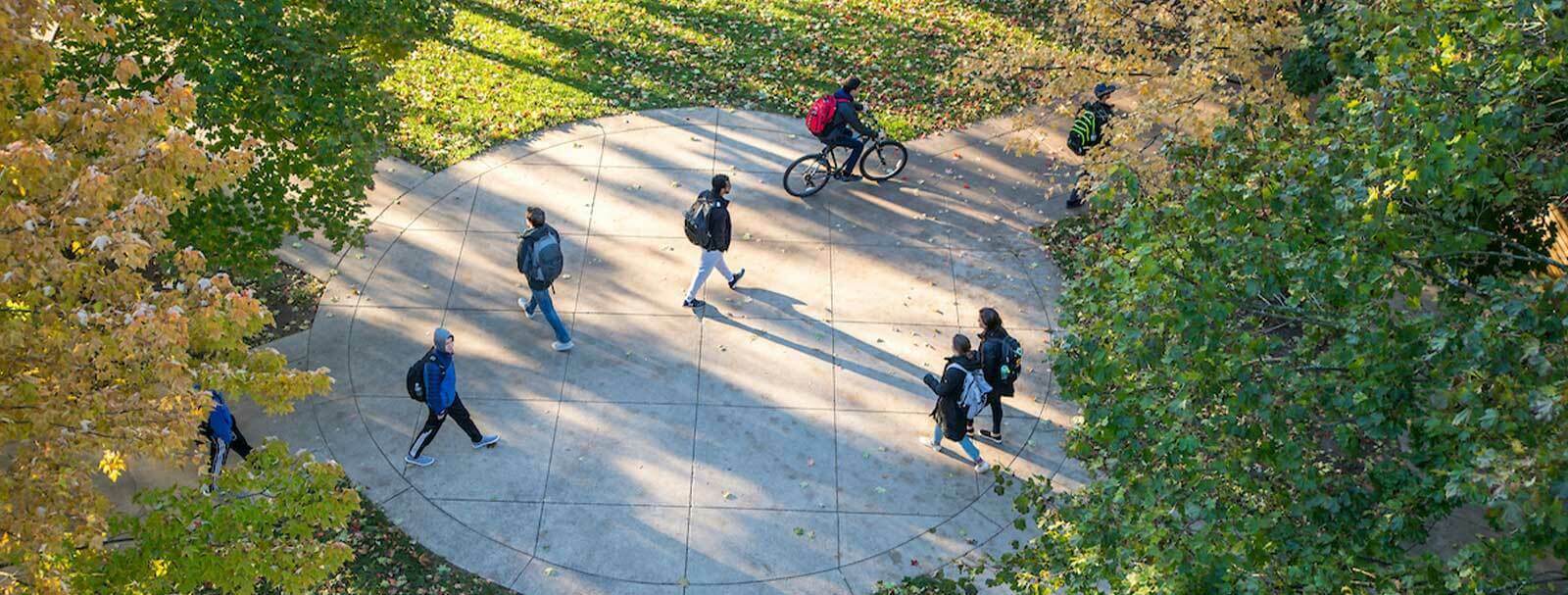
Reputational and Trust Research
Last winter the University engaged Edelman, the world’s largest communications firm, to work with Joel Curran, our Vice President for Public Affairs and Communication, and his team on a comprehensive study of Notre Dame’s reputation among certain groups. Although our primary concern at Notre Dame is with the actual quality of our teaching, research and related activities, it would be naïve to neglect public perceptions of the University, for we know that such perceptions drive the students who apply to attend, the faculty we can attract and the support we receive from benefactors.
In this regard, I am reminded of a conversation with a colleague who is on the faculty at Princeton and who works in the broad area of legal philosophy. He told me that Princeton regularly received inquiries about and requests for applications to its excellent law school. This is remarkable because Princeton has never had a law school. Apparently, when your academic reputation is as sterling as Princeton’s, even your non-existent departments are well regarded and highly rated.
While Notre Dame is one of the most trusted and respected universities, and well known for football and Catholicity, its research and global reach is less well known. "We must work together to help various constituencies appreciate the important work that . . . [our] faculty are doing in research and teaching."
Academic leaders and scholars in relevant fields at other distinguished institutions are probably the most important groups in shaping our academic reputation. It is also important, though, to understand the views of key sectors of the general public and our alumni, which were the focus of the Edelman study. Edelman conducted both a quantitative survey of the national informed public, the Catholic informed public, opinion leaders and Notre Dame alumni and donors and it disaggregated the results from these various groups. It also conducted qualitative focus groups with members of the informed public, opinion leaders and Notre Dame alumni. The results could be compared to the results from the same survey of a cohort of nine institutions, six of which were top AAU private universities and two of which were top AAU public universities.
Among the major takeaways was that Notre Dame is a highly regarded institution overall. Edelman calculates for each institution what they call a “trust score”, which is commonly regarded in such surveys as a key barometer. It is based on a rating by participants on a scale of 1-9 in response to the question, “How much do you trust institution X?” The number of those who are “low trusters” (ranking the institution from 1-4) are then subtracted from the number of high trusters (those who ranked the institution 7-9) to arrive at a net trust score for each institution, indicating the confidence respondents have in the institution. Among the comparison cohort, Notre Dame was among the top three, behind one institution and in a virtual tie with a second. Consistent with the Edelman survey a recent larger public survey, conducted by the firm Morning Consult, found that Notre Dame was the fourth most trusted institution among 135 top doctoral research universities.
Another noteworthy result from the Edelman survey was that significant and roughly equal percentages of respondents viewed Notre Dame as “very conservative” and “very liberal”. That result no doubt reflects the views of respondents in our polarized society, but I would suggest that it also reflect the fact that, at Notre Dame, views are held and publicly expressed that range across the spectrum of opinions in the U.S. I understand that this range of views creates tensions and draws criticism from one group or another. Still, I believe it is a strength of the University that in recent years we sponsored addresses from Nikole Hannah-Jones and Justice Clarence Thomas, that Speaker Paul Ryan and Senator Joe Donnelly held positions in the Keough School of Global Affairs, that Pete Buttigieg was a fellow in our Institute for Advanced Studies and Condoleezza Rice spoke last year on campus. I hope we can continue to welcome such a breadth of views on campus.
In the survey, our alumni saw Notre Dame as a premier university and speak positively of their time here. While valuing the academic quality of their education, they saw the University distinguished by its strong sense of community, its emphasis on developing the whole person and the challenge to serve the greater good. Along with such positive comments, though, went high expectations, particularly around transparency, accountability and inclusion. They are critical of the university in those areas they saw it failing to live up to these standards.
Consistent with previous similar studies, the Edelman survey showed that while Notre Dame is well-known and well-regarded for its Catholic mission and football, its research and global presence are less well known. The survey reveals that those whose trust in the University is low are those who are least likely to associate it with academic quality, research and global presence. We must strive to inform national and global audiences about our academic work.
We also found concerns that an emphasis on research may diminish the quality of teaching, and questions about our commitment to diversity and to freedom of thought. In addition, we see an opportunity to highlight how Notre Dame’s mission and values contribute to the broader social good. Obviously, we must continue to address any deficiencies where they exist, but we also must work to communicate effectively what we are doing.
Joel Curran and his team will identify key messages and craft a strategy to communicate these to various constituencies. He is gathering those who oversee communications for units across the University to leverage our collective capabilities and effectively communicate about our work. He and his colleagues will work toward a campus-wide communications plan to coordinate these efforts. We will need your help. We must work together to help various constituencies appreciate the important work that you, our faculty, are doing in research, teaching and global engagement, as well as the University’s efforts with diversity and inclusion.

Reporting Concerns/Misconduct
The high degree of trust the public places in Notre Dame is certainly encouraging, but it brings risk. For the greater the trust in an institution, the higher are the expectations and the more damage that will occur if people believe that trust has been betrayed. We have seen the reputational blow to American higher education by the “Varsity Blues” scandal, which involved dishonest practices in admissions at several institutions (though not Notre Dame). We have also seen Michigan State, the University of Michigan, USC and Ohio State—to name just a few—suffer staggering financial and reputational consequences from employees who were serial sexual abusers and whose behavior went unchecked. All those cases should remind us of the need for vigilance.
"If you see something, say something. Do it because it serves the University. Most importantly, do so because it is the right thing--the ethical thing--to do, and it will make our community stronger."
The Office of Human Resources has instituted a program, Living Notre Dame’s Values. It attempts to foster a “speak up” culture in which concerns and opinions, however critical, are constructively expressed, heard and receive an appropriate response. We must also emphasize the importance of reporting misconduct of any kind and ensuring appropriate follow up to such reports. To the extent that we strengthen a “speak up” culture at Notre Dame, we will not only lessen the financial and reputational risk of unchecked misconduct, we will be more effective in our common work.
If you learn of misconduct at the University, you can find on the Office of the President web page a site entitled Reporting Concerns, which lists the various ways in which concerns can be raised or misconduct of any kind can be reported. You find there a way to make a report anonymously, if you wish. Let me also take this opportunity to remind you, as I have done previously, that the University’s Ethical Conduct Policy requires every employee of the University—each one of us—to report misconduct that you believe has occurred. The University’s Non-Retaliation Policy prohibits retaliation against anyone reporting misconduct, and states that anyone who retaliates will be subject to disciplinary action up to and including dismissal.
If you see something, say something. Do so because it serves the University. Most importantly, do so because it is the right thing—the ethical thing—to do, and it will make our community better.
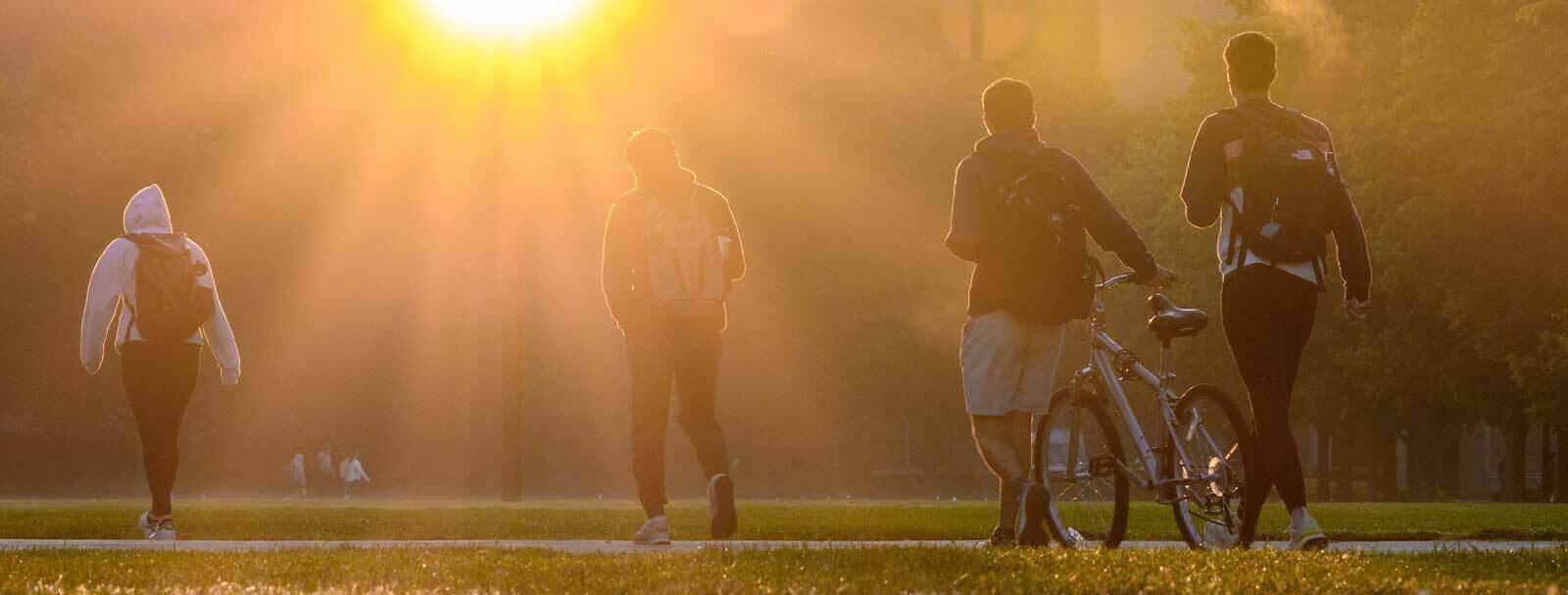
Diversity, Equity and Inclusion
The 2021 Trustee Task Force Report, Advancing Diversity, Equity and Inclusion at Notre Dame, gave us a charge and a framework for making progress, and I am grateful to individuals and divisions across campus who have responded energetically. Having reviewed some steps we have taken in letters to campus in June 2021 and on Martin Luther King Day 2022, I will very briefly report on further progress.
On July 1st Hugh Page assumed the newly created position of Vice President for Institutional Transformation and Advisor to the President. In this position, Hugh’s role will be to coordinate, to collaborate with and be a catalyst for progress on diversity, equity and inclusion. As he gets underway in this role, I look forward to his contributions to positive institutional transformation.
"The 2021 Trustee Task Force Report, Advancing Diversity, Equity and Inclusion at Notre Dame, gave us a charge and a framework for making progress, and I am grateful to individuals and divisions across campus who have responded energetically . . . I thank you for the ways many of you are contributing to these and other such initiatives, and ask for your continued commitment."
As part of our strategic planning process, a Theme Advisory Committee dedicated to Diversity, Equity and Inclusion consists of faculty colleagues and university leaders and is chaired by Professors Ernest Morrell and Diane Desierto. They are considering how the University’s academic core--the extraordinary teaching, research and scholarship you do-- can contribute in even more significant ways to creating a more diverse and inclusive Notre Dame and more broadly, a more just and equitable society. We continue to strive to make progress in hiring diverse faculty, and I thank colleges and departments for their efforts in recent years. Though we can be proud of recent efforts, more needs to be done.
While we were able to announce that last year’s incoming undergraduate class was the most diverse in the University’s history, I’m pleased to say that this year’s incoming class is even more diverse. 40% of the class are students of color or international students, up from 39% last year; 9% are Black or African American; 13% are Hispanic/Latino; 1% are Native American; and 10% Asian or Pacific Islander. We also continue to make progress with regard to welcoming students who are the first generation in their families to attend college or from low socioeconomic backgrounds, with 19% of this year’s class being Pell-recipients or First-Gen.
We continue to invest in support structures so that all students can flourish here, through the allocation of resources to the Transformational Leaders Program and other scholarship programs and by enhancing support structures in the colleges. And thanks to generous support from benefactors, we will start construction on a new diversity and inclusion center in LaFortune Student Center in December, designed with input from our students.
The Office of Strategic Planning and Institutional Research completed its campus-wide inventory of current diversity programs and initiatives, and has shared the results of that inventory with the wide array of campus partners who participated in creating it. This is a first step in raising awareness about the efforts that are underway and ultimately identifying any gaps and potentially scaling up those programs that are most effective.
Again, this is by no means an exhaustive list, but it offers some examples of the good work being done. I thank you for the ways many of you are contributing to these and other such initiatives, and ask for your continued commitment.

A Historic Investment in Our People
In July the University announced a $25 million commitment to increase the base compensation of eligible faculty, staff and student workers. This followed a $14 million one-time employee appreciation award for eligible employees in April and a $50 million pool for the year’s annual merit increases. The base compensation increase and the merit pool together constitute the largest investment in recurring compensation in the 180-year history of the University.
The faculty and staff who do the work of Notre Dame are our most valuable asset, and we are fortunate to be in a position to make this investment. I want to thank Shannon Cullinan, our Executive Vice President, Trent Grocock, our Vice President for Finance, and their teams who were able to develop a plan for this investment without a corresponding increase in student charges. I also thank our Board of Trustees who reviewed and approved this plan. One of Notre Dame’s greatest strengths has been maintaining a disciplined financial strategy that ensures the long-term financial health of the institution. While we are blessed to have one of higher education’s largest endowments, the vast majority of those resources are dedicated to a specific purpose, whether the support of an endowed chair or a specific program, and cannot be directed to other needs. It required a good deal of thought, planning, care and skill to direct such significant permanent resources to this historic investment while not reducing Notre Dame’s affordability and accessibility to prospective students. I thank everyone who worked so hard to make it possible.
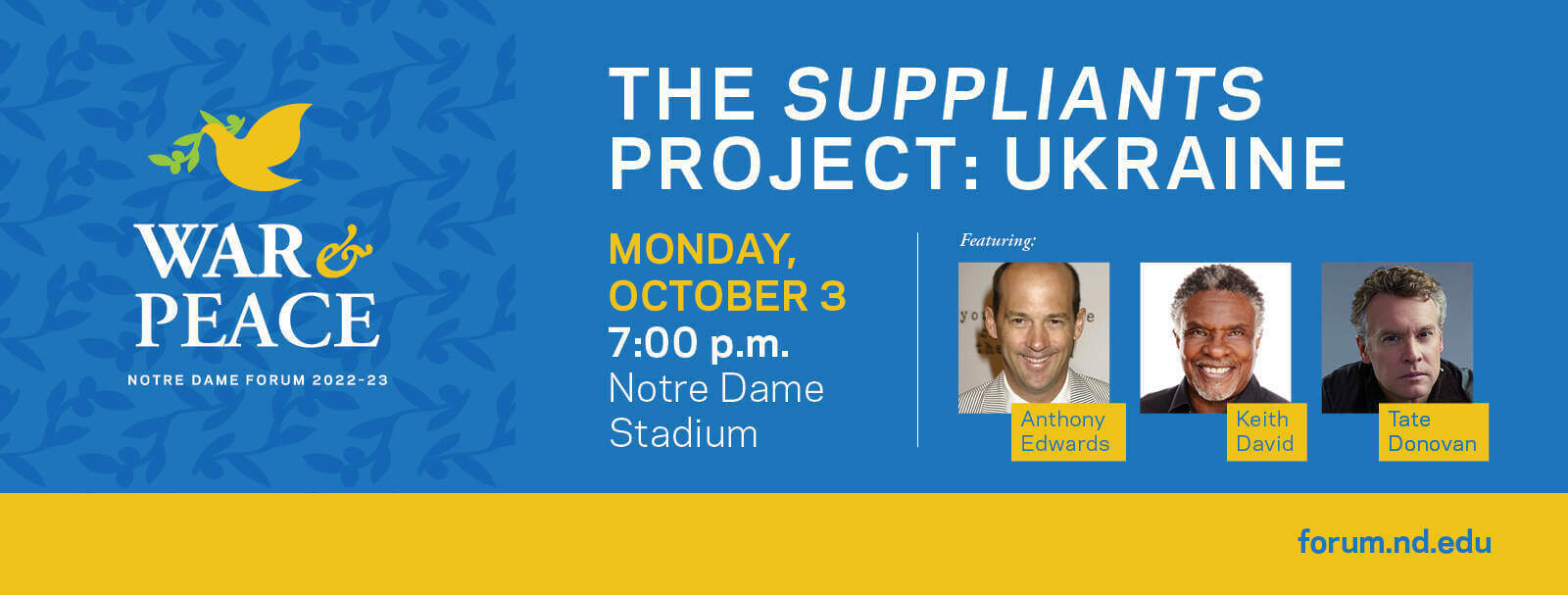
Notre Dame Forum
Finally, I put in a plug for our 2022-23 Notre Dame Forum on the theme, War and Peace. Since 2005, we have chosen a theme of importance to our nation and the world and put on events intended to stimulate reflection and discussions across campus, in classrooms, labs, studios, workplaces, dining halls, residence halls and in walks across campus. We have also found that alumni and friends of the University engaged with the topic.
Our practice has been for the President’s Office to host one or more keynote events, and to encourage further discussion in classes and through events sponsored across campus by departments, institutes, centers, student organizations and other groups of the many aspects of this broad theme.
On October 3, we will sponsor Theater of War Productions in an adapted performance of Aeschylus’ The Suppliants, which will include in the cast both professional actors and members of our campus community. Theater of War productions seeks to make the theatrical performance a catalyst for discussions in our community, and I hope it does so successfully here at Notre Dame.
I encourage you to engage the Forum theme in whatever way is appropriate. For more information or if you or your department or organization are planning events that relate to the Forum theme that you would like to see listed on our Forum website, I invite you to visit forum2022.nd.edu.
At a time when, as the United Nations reports, nearly a quarter of the world’s population live in conflict-affected areas and an estimated 274 million need humanitarian assistance due to conflict, it is important to give our attention to the theme of war and peace. Let us not only study the sad and persistent human reality of war, but strive to contribute to a world in which peace, justice and forgiveness predominate over the destruction, cruelty, hatred and death that war engenders.

One Final Item
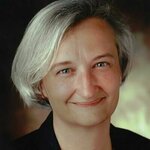 Chris Maziar
Chris MaziarPlease indulge me as I have one final item not in my earlier list of topics. Recently Chris Maziar announced that she would be stepping down from her role as Vice President and Senior Associate Provost at the end of this calendar year and will take a well-deserved administrative leave before returning to the classroom. Chris has been in the Provost’s Office since 2004, and has overseen a number of areas with great skill, dedication and grace. Last spring she stepped into the role of Acting Provost, in which she served from January 1 until June 30. She was simply invaluable to me and to Notre Dame at the time. She is exceptional in her combination of skill, experience and selfless dedication in service to this University.
When I was young, I imagined that the most gratifying experience is setting lofty goals, applying oneself over a long period and achieving them. With age and a bit more wisdom, I’ve realized that the most gratifying experience is setting lofty goals with others and achieving them together. For, in the end, as proud as you may be of an accomplishment, you treasure more the colleagues with whom you worked to achieve it. Chris is a colleague I—and, I know, many of you—will always treasure. Please join me in thanking a talented, dedicated and wonderful colleague.
I’ll conclude by simply thanking you for your time today and your colleagueship always. Thank you for all you do to serve the mission of Notre Dame, which is critically needed in the world. I’m excited to continue our work and, through our strategic planning discussions, to build an even stronger university in service to the world.